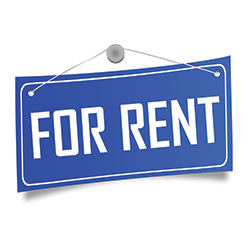|
REGISTRATION REQUIRED
event planning

Klick Inc.'s experimental event series, dubbed Muse, was inspired by the salons of the 17th century. Combining entertainment and education with memorable venues and noteworthy speakers, the events took place in New York, Boston, Chicago, and Philadelphia.
PHOTOS: Klick Inc.
Health Club
Sarah Jacobs' organized approach to event planning and her ability to hit the ground running leads to a 400-percent increase in attendance for a series of inaugural, salon-inspired events. By Lena Hewitt
"Most health-care events consist of more traditional conference and think-tank style meetings," says Jacobs, event producer at Klick Health. That means white papers, educational sessions, conference rooms, talking heads, and crudité. That also means that attendees have come to expect rather boring events. So to mix up the medical-marketing mélange, then, the Klick team turned to a popular social-gathering concept first introduced in 17th century France – the salon. Epicenters for thought provocation and artistic expression, salons inspired world leaders and produced revolutionaries, artists, and teachers. Everybody who was anybody was on the guest list, and the Klick team wanted to replicate that experience for the health-care community. And that's where Jacobs comes in. While her professional experience included large-scale nonprofit events for hospitals and foundations, Jacobs had never planned the type of events the Klick marketing team wanted to execute. But she did have one big advantage on her side – the ability to operate under stress. "Most of the events I had produced were multiday, celebrity-driven executions that involved high net-worth fundraisers," says Jacobs. "I was dealing with high-pressure situations, a ton of stress, important stakeholders, and tight deadlines. There were a lot of moving parts." Klick's marketing team felt that intensity made Jacobs perfect for the gig. That job, she would soon discover, comprised producing four events in four cities in the span of just three months. Although Klick didn't have an internal events team for Jacobs to work with, it did know the goals it wanted to accomplish, including generate brand awareness, facilitate conversations among attendees and Klick reps, and position the company as a disruptive thought leader and innovator committed to shaping the future of digital health. In short, Klick wanted to show attendees that there's more to health-care events than keynotes inside hotel ballrooms. And it wanted to do so in Boston, Chicago, New York, and Philadelphia – four cities it not only deemed forward thinking, but also figured would have plenty of venue options on such short notice. With the goals and cities cemented, Jacobs got to work with her colleagues nailing down countless variables, including planning promotional marketing, securing speakers, booking entertainment, selecting venues and catering, choosing décor, and designing and mailing the invitations. And she had to do all this for four different events, with the first one coming up in just six weeks.
PLANNING TIMELINE
 SIX WEEKS OUT
SIX WEEKS OUT➤ Visit the venue ➤ Sample food ➤ Select décor and lighting ➤ Book talent FIVE WEEKS OUT ➤ Start marketing campaign ➤ Finalize floor plans ➤ Determine décor, furniture, bar, and food-station placement ➤ Finalize menus FOUR WEEKS OUT ➤ Produce content (speaker videos, keynotes, video-screen content) ➤ Create/order signage, agendas, and branded giveaways THREE WEEKS OUT ➤ Draft audiovisual/production schedule ➤ Write run of show for content and behind-the-scenes production TWO WEEKS OUT ➤ Assign responsibilities to team ➤ Book and confirm travel for team ➤ Finalize talent logistics ➤ Book travel for talent/speakers ➤ Proof run of show WEEK OF THE EVENT ➤ Send event reminders to attendees ➤ Distribute reminders and final notes to team members and vendors Planning Prescription While all four events would fall under the Muse umbrella, Jacobs and the Klick marketing team wanted to ensure each stood on its own as a unique experience, and that they all took creative cues from their respective locations. The blank slate, as it were, would be daunting to any event planner. The biggest challenge was setting expectations internally and making sure everyone was on the same page. So she worked with what she calls a critical path – a series of organizational tools and process documents she's used since starting her event-planning career nearly a decade ago. "It keeps me organized, and organization is key," she says. This is especially true when you're creating an event program out of nothing. "Klick didn't have a blueprint when creating Muse – just a vision," says Lisa Guo, marketing coordinator for Klick Health. "Sarah was tasked with bringing this vision to life." Jacobs wanted to create a collaborative exchange with everyone on the team. So with the Boston event just a month and a half away, she worked with Klick's marketing department, which comprised 13 strategists, art directors, digital designers, videographers, photographers, and publicists, to createthe visual identity for the Muse events. That identity included branding guidelines regarding color palette and messaging, and would be replicated throughout all four venues. Then, she established an outline of all the major project components for each location and delegated them to appropriate team members, while she took charge of the logistical details. Jacobs' process templates and knack for delegation meant that the Klick team could plan all four events simultaneously, evolving their approach as needed. She also participated in daily "stand up" meetings among all involved departments, requiring each segment to brief the rest of the group on progress, and she got the CEO involved early on to ensure the steps she was taking would produce the event he had in mind for Muse. 
VISUAL IDENTITY: Each Muse event featured the same magenta color palette to maintain a consistent brand identity.

THEATRICS: Performances by dancers and contortionists entertained guests while they mingled and networked.

PRESENTATIONS: Keynotes by industry movers and shakers were paired with musical performances.
Another key to success was implementing the same rough template for each event. Regardless of the venue, every Muse salon had the following core elements: a guest list featuring physicians, university health researchers, clinicians, patient advocates, pharmaceutical and biotech professionals, health-care startup companies, and health/news media members; an Oculus Rift experience to demonstrate Klick's digital-imaging and projection-mapping products; musical performances and motivational speakers to inspire the crowd; and ample high-end appetizers and crafted cocktails. The primary difference, then, would be the venues, which Jacobs strategically selected.All the venues had to support Muse branding and assist in positioning Klick as a thought leader within the industry. So Jacobs chose Le Laboratiore in the heart of Boston's biotech neighborhood because of its technology vibe, while Redmoon Events Venue in Chicago was picked due to its theatrical ambience, and the New York venue, The Garage 611, had an industrial atmosphere. Philadelphia Muse would be held at Front & Palmer, a barrel factory transformed into an event space. Show Time As attendees arrived at each Muse event, they were greeted by the "client concierge," who welcomed them and checked them in. Once inside, guests were invited to mingle and snack on appetizers crafted by a renowned area chef, such as Chef Stephanie Izard, owner of The Girl and the Goat in Chicago. After noshing, attendees made their way to the Oculus Rift experience that demonstrated the educational benefits of Klick's digital-imaging software. Wearing OR headsets, they traversed through a simulated blood vessel where they saw red blood cells, platelets, and plaque-clogged passages. Attendees then made their way to another presentation area demonstrating how 3-D animation and projection mapping onto mannequins can illustrate things like blood flow and disease treatments. 
CRAFT COCKTAILS: In keeping with the health-care theme, cocktails were served in test tubes and beakers.

DEMONSTRATIONS: Attendees could participate in an Oculus Rift experience that demonstrated Klick Health's products.

POSH VITTLES: Renowned chefs prepared menus for each Muse event, and final performances closed out the event.
After the product demonstrations, attendees were treated to a series of musical and artistic performances taking place on a central stage. Though the acts changed from venue to venue, the criteria remained the same: The performers and their messages had to be inspirational and demonstrate a connection between art, innovation, and science. For example, Muse featured presentations by Adrianne Haslet-Davis, a professional dancer who lost half her leg in the 2013 Boston Marathon bombing but continues to perform; Jack Andraka, the teen author of "Breakthrough" who invented an inexpensive early detection test for pancreatic, ovarian, and lung cancers; and Matthew Zachary, a brain-cancer survivor and the founder of Stupid Cancer, a nonprofit organization for youth/young-adult cancer advocacy.At the end of the events, attendees received a book written by one of the presenters. Amid passed hors d'oeuvres and craft cocktails, guests experienced a truly engaging event that seemed more fancy shindig than educational health-care conference. Positive Prognosis Planning and executing four events isn't all that difficult. But doing it with little time and internal resources is almost miraculous, according to judges. "It's amazing that she was able to get anything done in six weeks," said one judge. "Her ability to book such enormous talent in that time frame is inspiring. For that she gets high grades." Indeed, the event series was so well executed that attendance had increased by 400 percent by the time the third installment rolled around, allowing Klick to reach an extremely selective audience of more than 500 movers, shakers, and decisions makers within the health-care world. Klick's salon-inspired Muse events also led to 230,000 social-media impressions and coverage on Bloomberg Business Radio, Fox TV News, and a radio station in Boston. By bringing a fearless attitude to her first day on the job and getting right to work setting expectations and processes, Jacobs proved that anything can be done with a healthy dose of organization – and a creative muse. E
|
|
|
||||||||||||||||||||||||||||
|
|
||||||||||||||||||||||||||||
|
TOPICS Measurement & Budgeting Planning & Execution Marketing & Promotion Events & Venues Personal & Career Exhibits & Experiences International Exhibiting Resources for Rookies Research & Resources |
MAGAZINE Subscribe Today! Renew Subscription Update Address Digital Downloads Newsletters Advertise |
FIND IT Exhibit Producers Products & Services All Companies Get Listed |
EXHIBITORLIVE Sessions Exhibit Hall Exhibit at the Show Registration |
ETRAK Sessions Certification F.A.Q. Registration |
EDUCATION WEEK Overview Sessions Hotel Registration |
CERTIFICATION The Program Steps to Certification Faculty and Staff Enroll in CTSM Submit Quiz Answers My CTSM |
AWARDS Exhibit Design Awards Portable/Modular Awards Corporate Event Awards Centers of Excellence |
NEWS Associations/Press Awards Company News International New Products People Shows & Events Venues & Destinations EXHIBITOR News |
||||||||||||||||||||
|
||||||||||||||||||||||||||||



 Sarah Jacobs
Sarah Jacobs


